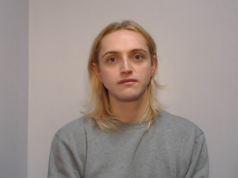Councillors in Bristol, previously home to the Edward Colston statue, have called for a parliamentary commission of inquiry to be set up to investigate reparations for the UK’s part in the historical Slave Trade.
On Tuesday evening, a motion was passed by a full Council meeting that said the experiences, voices and perspectives of African heritage groups were needed to help develop a “reparations plan” for the city, the first authority outside London to approve this.
Those pushing for the motion have suggested that while the reparations could be financial, it was about much more than just money.
Cleo Lake, the Green Party Councillor who proposed the motion, said: “This is about equity and understanding. Reparation does include but goes beyond monetary compensation.”
She added: “It is of international significance that this cross-party motion has passed. History is made. Bristol is now the first core city in the UK to give our support to the growing campaign for reparations.”
The Council has agreed that more local initiatives to help communities still suffering from systemic poverty, as a result of slavery, should be introduced.
After the meeting, Cllr Lake reportedly said: “Bristol merchants grew rich through African enslavement and this legacy is still with us – not only in the buildings that surround us but also in the rife inequalities of wealth, power and opportunity across our city.”
During the debate, the City Mayor, Martin Revees said: “As the first directly elected black Mayor in Europe, I can also tell you I’m not just the Mayor. I still experience the world as a black man and, even within this organisation, I experience the consequences of having black skin. Race is an ever-present reality that does not disappear just because we would like to wish it away.”
In response to this, Culture Secretary Oliver Dowden gave advice to museums and cultural institutions, saying: “Don’t allow yourself to be pushed around by the zeitgeist of the day.”
This followed his speech at the History Matters conference, in which he announced that cultural organisations feel they are being “bullied by left-wing campaigns”.



